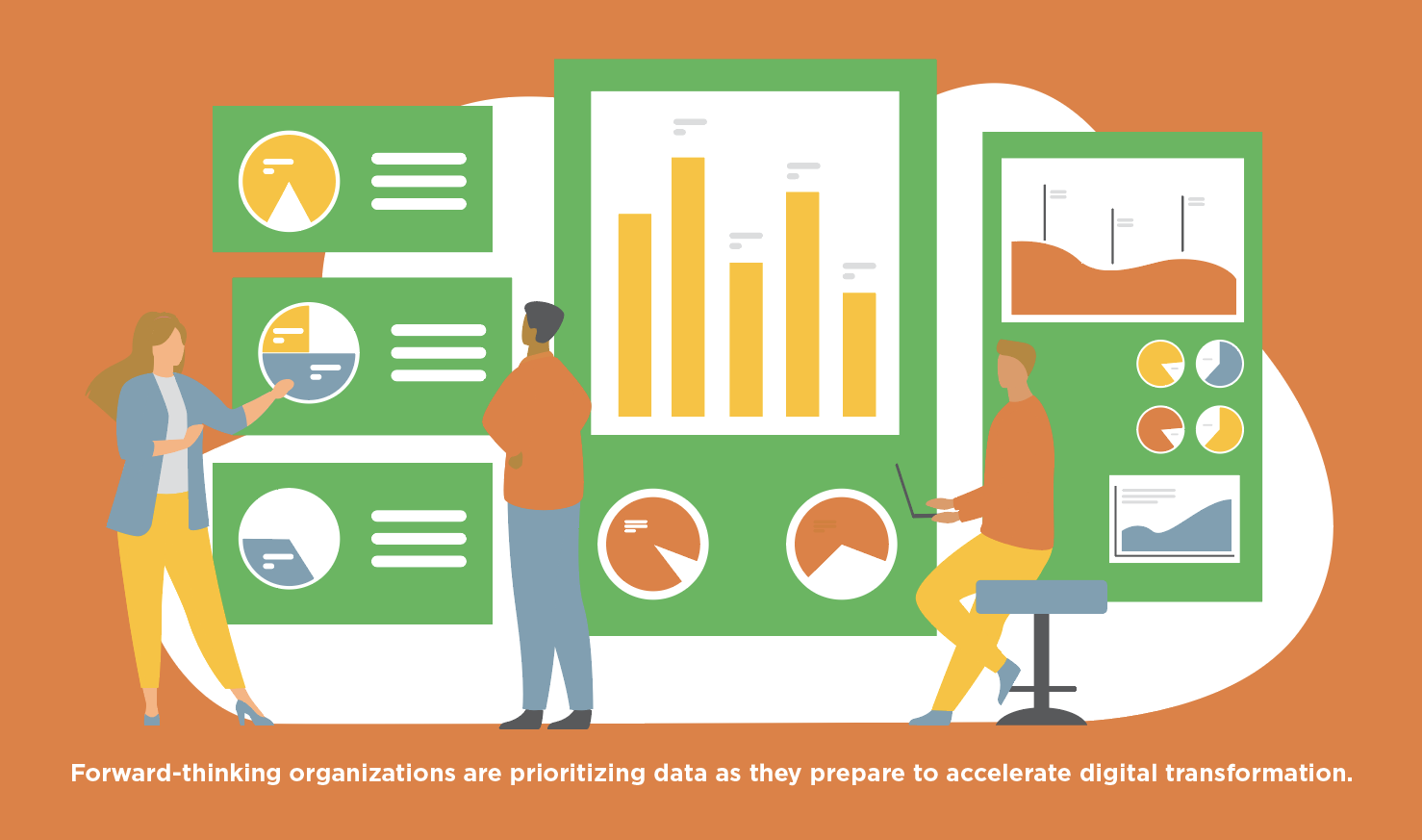The fallout from the pandemic, in combination with economic uncertainty and unprecedented industry challenges, has forced CEOs and leadership teams to prioritize accelerated digital transformation in recent years. However, some companies are silently revolutionizing their business through a strategic approach that Accenture has deemed the Total Enterprise Reinvention.
This emerging group of industry leaders (called Reinventors) focuses on building a digital core that drives growth and enhances operational efficiency. These organizations set performance standards and achieve remarkable outcomes. As a result, they demonstrate the importance of establishing a data-driven foundation that helps businesses keep pace and remain ahead of the competition.
Digital Transformation and Total Enterprise Reinvention
Digital transformation, or the use of digital technologies to reinvent how a company operates, has quickly progressed due to the growth of remote work, rising consumer expectations, and increasingly competitive business landscapes. In early 2023, Foundry reported that 93% of all companies have already adopted or plan to adopt a digital-first business strategy. This fast-paced digital change across industries presents an opportunity for organizations to streamline workflows and break data free from silos. In doing so, they are positioning themselves to leverage advanced technology like artificial intelligence (AI) and machine learning (ML).
A significant emerging concept within this digital transformation journey is the idea of total enterprise reinvention, which goes beyond isolated digital initiatives and encompasses a holistic transformation of the entire enterprise. This approach recognizes the value and growing necessity of:
- Reimagining business processes.
- Leveraging data and analytics.
- Integrating digital technologies across all aspects of the organization.
Giving inactive data a new life
While many companies today are actively working to implement digital-first systems, some teams are not accessing the value of their data. These organizations are not in a position to leverage the insights and strategic advantages their data holds.
Why? First, the scale and complexity of modern data have become a significant challenge for organizations. The sheer volume of data generated from diverse sources (e.g., social media, customer interactions, and transactions) can quickly overwhelm traditional data management systems and processes. Moreover, this information often resides in different silos fragmented across departments, making it harder to draw meaningful conclusions. Knowing where data resides is only part of the problem; teams need systems for accessing, extracting, and analyzing it. These processes do not include distributing the insights to the right people or systems.
In the modern business landscape, data is the key to uncovering valuable insights and patterns that inform strategic decision-making, product development, targeted marketing, and personalized customer experiences. Making the most of the information a company collects will be a linchpin in driving business growth and maintaining a competitive edge in 2023 and beyond. Statistics show that companies utilizing big data solutions increase profits by an average of 8%.
Truly innovative organizations are realizing the potential of company intelligence and taking steps to achieve total enterprise reinvention.

How teams are unleashing the power of their data
There are a few best practices that organizations can introduce to extract valuable insights and drive measurable business results from data, including:
- Data governance: Establishing a robust governance framework helps ensure data quality, integrity, and security. This framework typically involves defining data ownership, creating standards, and implementing solutions to optimize data management processes to ensure information is accurate, reliable, and accessible.
- Advanced analytics: Leveraging advanced analytics techniques enables teams to uncover patterns, trends, and correlations in their data that support data-driven decisions and optimized processes. According to a report from O’Reilly Media, 48% of businesses today use machine learning, data analysis, and AI tools to maintain the accuracy of their data.
- Data visualization: Companies can utilize data visualization tools and techniques that allow teams to transform complex information into actionable visual representations, such as charts, graphs, or dashboards. This process helps simplify your data interpretation and improves the communication of insights.
- Data integration: Disconnected data across the enterprise makes it nearly impossible to take advantage of information successfully. Integrating data from disparate sources and centralizing it into a unified data platform can provide a comprehensive overview of the data landscape. As a result, teams are better positioned to analyze data, facilitate cross-functional collaboration, and eliminate inconvenient data silos.
Ultimately, data-driven businesses are better-equipped to consistently outperform their peers, which can considerably impact market value and increase consumer loyalty.
The benefits of activated data
Accelerated digital transformation across industries drives teams to adopt and embrace enterprise reinvention strategies. By breaking down data silos and unlocking the full potential of data in the process, this holistic approach allows organizations to:
- Gain actionable insights.
- Make data-driven decisions.
- Transform their operations to meet the changing needs and expectations of customers.
- Maintain a competitive edge in the digital age.
Is your organization looking for support to create a robust, data-driven foundation to enable agility, innovation, and resilience? Inspirage’s Enterprise Data Management (EDM) practice specializes in industry-leading methodologies, tools, and accelerators to solve complex business problems and gain competitive advantage by enabling organizations to define, integrate, govern, and retrieve data. By deploying our EDM and Master Data Management (MDM) solutions, you can expect to establish a competitive advantage that you can count on to enhance your business processes.
Contact us today to learn more about our customized solutions and world-class Oracle Cloud expertise.